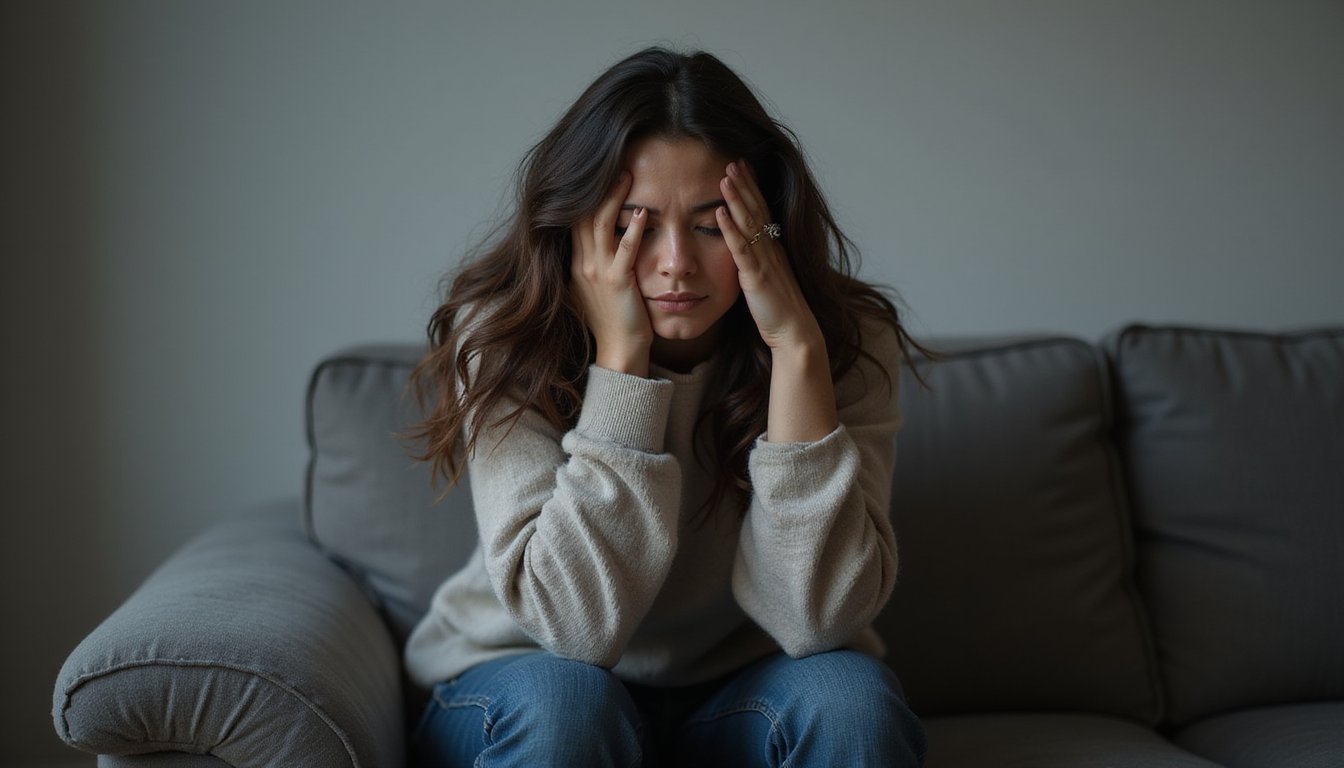Effective Ways to Treat Depression
Depression is a severe illness that can take an emotional and physical toll on those affected. It affects how people feel, think, and behave, negatively impacting how they enjoy life. However, there are effective treatments out there that can help individuals cope with their depression and lead healthier, more fulfilling lives. Understanding the most effective ways to treat depression is essential to finding a successful recovery path. Below are some of the most commonly used treatments for depression.
Avoid Alcohol and Drugs
Depression is a severe condition that can devastate an individual’s physical and mental health. While medication, therapy, and lifestyle changes are often the first defense against depression, avoiding alcohol and drugs may also be an effective treatment.
Alcohol and drugs can increase sadness or anxiety, thus worsening depression symptoms. In addition, substance abuse can lead to addiction, further complicating matters for a person with depression. Therefore, cutting out substances like alcohol and drugs is essential for managing depressive episodes.
It is important to remember that avoiding alcohol and drugs can be difficult, especially if someone is in the midst of a depressive episode. Plus, most people experience withdrawal symptoms if they suddenly stop drinking or using drugs, which can further prevent any treatment for depression.
The best way to deal with withdrawal symptoms when detoxing from alcohol and drugs is to seek professional help. Mental health clinicians can guide you on how to safely reduce or quit substance use and recommend other strategies for managing depression. They may also be able to refer you to support groups or therapy that can provide additional assistance in coping with depressive episodes. Lastly, remember that while avoiding alcohol and drugs can be challenging, the long-term benefits of doing so are worth the effort. Once users have successfully navigated through their withdrawal period, they will be well on their way to living a healthier lifestyle.
Treatment for Depressed, Alcoholic Clients
Alcoholic clients who suffer from depression require special attention and treatment to recover successfully. The first step is to assess the severity of their depression and substance abuse to develop an appropriate treatment plan. A doctor may prescribe antidepressants and medications to help reduce cravings for alcohol.
In addition to medications, psychotherapy is essential to treating depressed, alcoholic clients. Cognitive-behavioral therapy (CBT) can help individuals learn coping skills and manage triggers that lead to relapse. It can also help them develop better communication and problem-solving skills.
Finally, support groups can be a valuable resource for alcoholic clients who suffer from depression as well. Attending meetings with other recovering alcoholics can provide social support, guidance, and motivation for recovery from depression and addiction. Recovery is a journey, and treating both depression and alcohol use disorder must be done to ensure long-term success.
Psychotherapy, Medications, and Lifestyle Changes
While there are many different approaches to treating depression, psychotherapy, medications, and lifestyle changes are some of the most effective treatments available. Psychotherapy, also referred to as talk therapy, typically involves meeting with a trained mental health provider to discuss symptoms and identify underlying causes of depression. This treatment can help people develop coping strategies and new perspectives on stressful or challenging situations that may be causing or contributing to their depression.
Also, medications, such as antidepressants and mood stabilizers, are often prescribed to help relieve symptoms of depression. These medications work by altering levels of certain chemicals in the brain that affect mood and behavior. They can be very effective in treating symptoms, but they may also have side effects that need to be monitored.
In addition to these treatments, lifestyle changes can also help improve your mood and decrease overall feelings of sadness associated with depression. These include regular exercise, eating healthy foods, spending time with supportive friends or family members, and engaging in relaxing activities. With the right combination of treatments, most people who suffer from depression can achieve some level of relief and lead a more fulfilling life.
Short-Term Therapies
Short-term therapy is an effective way to treat depression, and it is given for a short time, often six to 12 weeks. It focuses on helping clients identify and understand their thoughts and feelings related to their condition. The therapist helps the client develop coping strategies for managing symptoms. Short-term therapy is beneficial in reducing depressive symptoms, improving mood and functioning, and increasing self-esteem. It can also help clients build skills that will help them manage their depression over the long term.
Behavioral activation therapy (BAT) is an example of a short-term therapy that helps treat depression. It focuses on assisting people in increasing their activity levels, which can lead to improved mood, functioning, and relationships. Individuals can become more motivated and active participants by engaging in activities that bring pleasure and reward. This type of therapy also helps people to identify patterns of behavior that are not helpful and replace them with more adaptive ways of responding.
Another type of short-term therapy is interpersonal psychotherapy (IPT). This is based on attachment theory and focuses on “interpersonal distress” as the primary contributor to psychological distress. IPT helps clients develop strategies for improving their relationships with others to reduce depression. This therapy also helps people become aware of their emotions and interactions with others. This can lead to improved communication, relationship satisfaction, and overall well-being.
Acceptance and commitment therapy (ACT) is another short-term therapy to consider when treating depression. This therapy focuses on mindfulness, acceptance, and commitment by helping individuals learn to identify unhelpful thoughts and beliefs that contribute to depressive symptoms. It helps them develop strategies for changing their behavior to reduce suffering. In addition, ACT can help improve coping skills, self-compassion, and overall well-being.
While short-term therapies are effective in treating depression, individuals must understand that treatment can take some time and requires commitment from both the client and the therapist. It is also important to note that different types of therapies may be more suitable for specific individuals. By working with a mental health professional to determine the best treatment for you, you can start feeling better and more connected to others.
Eat a Balanced Diet
Eating a balanced diet is an effective and natural way to treat depression. Studies have shown that the foods we eat can play a significant role in our mental health, particularly when it comes to mood disorders like depression. Eating a balanced diet regularly can improve your mental health. This may reduce your need for medication or other treatments.
To effectively treat depression with a balanced diet, eating nutritious whole foods is essential. This includes fruits and vegetables, lean proteins such as fish or poultry, healthy fats such as nuts and seeds, and whole grains. All of these provide essential vitamins and minerals that help support brain functioning.
Additionally, avoiding processed or sugary snacks can reduce inflammation linked to depression. A balanced diet should also include plenty of water for hydration since dehydration can worsen symptoms of depression, too. Eating healthy meals helps maintain steady blood sugar levels, improving mental health. Finally, getting enough sleep and exercise is essential as both are necessary for overall mental health.
Exercise Regularly
Exercise has long been known to be an effective way to treat depression and other mental health issues. Regular physical activity can help reduce stress, boost your mood, and improve your overall well-being. It can also increase the production of endorphins, which are responsible for feelings of pleasure, as well as reduce cortisol levels, which are related to stress. Exercise can provide social support and a sense of accomplishment from learning new skills or reaching new goals as well. However, exercising the right way to reap all of its benefits is essential.
First, if you are new to exercising, start slow and gradually increase the intensity. This will help your body get used to the routine and avoid potential injuries. Second, engage in activities that you enjoy doing. Whether running or swimming, pick a physical activity that excites you and is something you look forward to every day. Finally, make sure to give yourself time for rest and recovery. This will allow your body to heal from the physical exertion and time for your mind to reset. Exercise is a great tool to combat depression, but you must do it correctly to maximize its effects.
If you feel overwhelmed, try talking to a professional or engaging in other healthy activities, such as yoga and meditation. These activities can help reduce stress and anxiety while also providing mental clarity. By exercising regularly the right way, you can effectively use physical activity as a tool to treat depression and anxiety. It is essential to listen to your body and find what works best for you to maximize its effects on your mental health.
Create a Routine
Depression can be a debilitating mental health condition, but it does not have to take over your life. One of the most effective ways to treat depression is to get into a routine and stick with it. A regular schedule helps build structure into your day and provides you with something familiar and comfortable even when everything else feels chaotic. Having a routine will also help reduce stress levels, which can make depressive symptoms worse. With consistency comes predictability, which offers security during turbulent times.
To create a routine, start by making small goals and breaking them down into manageable chunks. This could include taking a walk daily, setting aside time to meditate or practice mindfulness, eating healthy meals, and getting enough sleep each night. With time and desire, it’s possible to create a routine that fits your lifestyle and can help you manage depression.
Get Enough Sleep
Depression is a mental health condition that can affect your health. Fortunately, there are ways to treat depression, and one of the most effective methods is getting enough sleep. Studies have proven that lack of sleep can worsen symptoms of depression, while proper rest can help improve mood and reduce stress levels. Getting adequate sleep each night helps regulate hormones, restore energy levels, and boost concentration, all essential factors for managing depression.
Sleeping well improves overall physical health, reducing the risk of complications associated with untreated mental illness. Taking steps toward improving your sleep habits is essential to managing depression effectively. Not getting enough sleep can lead to memory problems, irritability, stress, and fatigue, all common symptoms associated with depression.
Create a relaxing environment in your bedroom by turning off electronic devices. Avoiding caffeine before bedtime and getting up at the same time every day is also important. These simple steps can help ensure you get enough rest each night to tackle depression with more energy and enthusiasm.
Accept Responsibilities
Depression is a mental health condition that can have severe and long-lasting effects on an individual’s life. To effectively treat depression, taking responsibility for one’s emotions and behaviors is essential. Accepting responsibilities means recognizing that your thoughts, feelings, and actions are in your control. This includes taking ownership of mistakes or failures as well as successes.
It also involves understanding the consequences of one’s decisions and accepting those consequences with grace. When individuals take responsibility for their emotional states, they can begin to make positive changes in their lives that will help lead to improved mental well-being over time.
Managing Depression
In conclusion, depression can be challenging to manage, but there are many effective ways to treat it. Simple lifestyle changes, exercising regularly, eating healthily, and avoiding drugs or alcohol, can improve your mental well-being. Additionally, talking with friends and family about how you’re feeling is incredibly important for managing depression. Lastly, make sure that you are aware of what not to do if you’re struggling with depression so that the condition does not worsen over time. This includes isolating yourself from social contact or engaging in negative self-talk.
With these tips in mind, it is possible to take control of your mental health and lead a healthier life. If you’re suffering from depression, contact the National Depression Hotline for more help and support.






